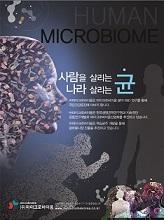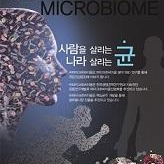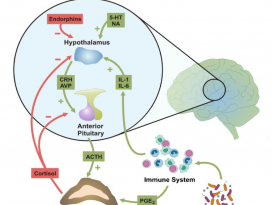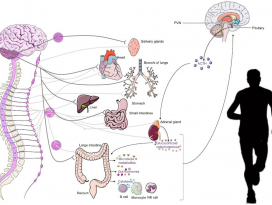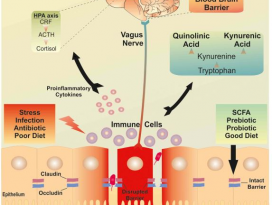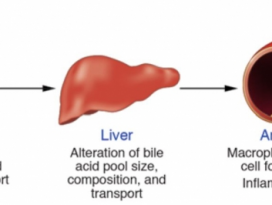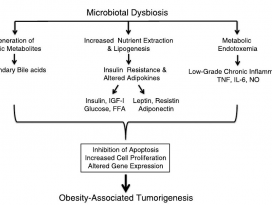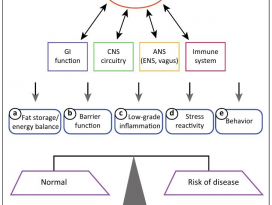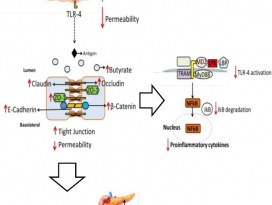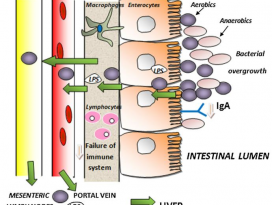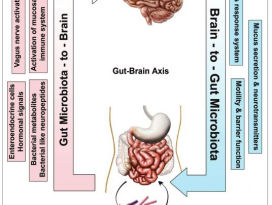[Gut Microbiome] Recovery of the Gut Microbiome following Fecal Microbiota Transplantation
- e 2138
Recovery of the Gut Microbiome following Fecal Microbiota Transplantation
Anna M. Seekatz, Johannes Aas, Charles E. Gessert, TimothyA. Rubin, Daniel M. Saman, Johan S. Bakken, Vincent B. Young
Department of Internal Medicine, Division ofInfectious Diseases, Department of Microbiology and Immunology, University ofMichigan, Ann Arbor, Michigan, USA; Essentia Health, Department ofGastroenterology, Duluth, Minnesota, USA; Essentia Institute of Rural Health,Duluth, Minnesota, USA; St. Luke’s Hospital, Section of Infectious Diseases,Duluth, Minnesota, USA
| Abstract Clostridium difficile infection is one of the most common health care-associated infections, and up to 40% of patients suffer from recurrence of disease following standard antibiotic therapy. Recently, fecal microbiota transplantation (FMT) has been successfully used to treat recurrent C. difficile infection. It is hypothesized that FMT aids in recovery of a microbiota capable of colonization resistance to C. difficile. However, it is not fully understood how this occurs. Here we investigated changes in the fecal microbiota structure following FMT in patients with recurrent C. difficile infection, and imputed a hypothetical functional profile based on the 16S rRNA profile using a predictive metagenomic tool. Increased relative abundance of Bacteroidetes and decreased abundance of Proteobacteria were observed following FMT. The fecal microbiota of recipients following transplantation was more diverse and more similar to the donor profile than the microbiota prior to transplantation. Additionally, we observed differences in the imputed metagenomic profile. In particular, amino acid transport systems were overrepresented in samples collected prior to transplantation. These results suggest that functional changes accompany microbial structural changes following this therapy. Further identification of the specific community members and functions that promote colonization resistance may aid in the development of improved treatment methods for C. difficile infection. |
제목
분변 미생물 이식(FMT) 이후 장내 미생물총의 회복
내용
클로스트리듐 디피실리(Clostridium difficile)감염은 인체 건강과 관련하여 가장 흔한 감염 중 하나이며, 감염 환자의 최대 40%가 표준적인 항생제 치료 후 질병의 재발로고통받는다. 최근 재발성 C. difficile 감염을 치료하기 위해 분변 미생물 이식 (FMT, Fecal Microbiota Transplantation)이 성공적으로 이루어졌다. FMT가 C. difficile에 대한 집단 저항성이 있는 미생물의 회복을 돕는다는 가설을 세웠다. 그러나 이것이 어떻게 발생하는지는 완전히 알려지지 않았다. 본 연구에서우리는 재발성 C. difficile 감염 환자의 FMT 후 장내 미생물의 구조 변화에 대해 조사하였으며, 예측형 메타 유전자 툴(predictive metagenomic tool)을사용하여 16S rRNA 프로필을 기반으로 한 가상의 기능적 프로필을 측정하였다. FMT 후에 박테로이데테스(Bacteroidetes)의 상대적으로 증가하고 프로테오박테리아(Proteobacteria)의 상대적으로 감소되는 것이 관찰되었다. 이식 후 수혜자의 분변 미생물총은 이식 이전의 미생물총보다 더욱 다양하고 기부자의 프로필과 더욱 유사했다. 또한, 우리는 측정한 메타 유전학 프로필 내 차이를 관찰했다. 특히, 아미노산 운반 시스템은 이식 전에 수집된 샘플에서 지나치게기술되었다. 이러한 결과는 기능적 변화는 해당 요법 후에 미생물 구조의 변화를 수반함을 암시한다. 집단 저항을 촉진하는 특정 미생물총의 구성원과 기능들에 대한 추가적 식별은 C. difficile 감염에 대한 치료 방법의 개선 및 발전을 도울 수 있다.
Keywords
: #ClostridiumDifficile #C.difficile #C.difficileInfection#FecalMicrobiotaTransplantation #FMT #Bacteroidetes #Proteobacteria #Probiotics#Microbiome #Microorganisms #Microbes #GutMicrobiome#GutMicrobiota
#클로스트리듐디피실리 #C.디피실리#C.디피실리감염 #분변이식 #분변미생물이식 #분변미생물군이식 #분변미생물총이식#박테로이데테스 #프로테오박테리아 #유익균 #마이크로바이옴 #장내미생물 #장내미생물총 #장내미생물군
[출처: Seekatz, A.M., Aas, J., Gessert, C. E., Rubin, T. A., Saman, D. M., Bakken, J. S., &Young, V. B. (2014). Recovery of the gut microbiome following fecal microbiotatransplantation. MBio, 5(3), e00893-14.]
|
| ㈜마이크로바이옴 ㈜마이크로바이옴은 생명공학 최고의 기술력을 바탕으로 마이크로바이옴 산업의 성장과 발전의 선도적 역할을 하고 있는 대한민국 대표 마이크로바이옴 R&D 전문 기업입니다. ㈜마이크로바이옴은 생명공학 국가연구기관인 한국생명공학연구원과 마이크로바이옴 관련 상품에 대하여 공동연구개발 및 기술이전을 통하여 공동특허 출원과 마이크로바이옴 상품화에 성공하였고, 마이크로바이옴 글로벌 기업이 되기 위하여 연구개발을 지속하고 있습니다. |
| no. | 제목 | 조회수 |
|---|
㈜마이크로바이옴 ㅣ 서울시 서대문구 연희로 77-12 영화빌딩2층
Tel :02-322-0302 l Fax : 02-322-0759
Copyright (c) Microbiome. Co. All Rights Reserved.
